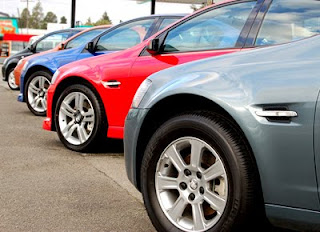Thursday, April 8, 2010
Car-makers unlikely to cut prices despite threats of imports
KARACHI: The automobile assemblers are likely to stay resilient against Prime Minister Yousuf Raza Gilani’s recent warning that car imports will be liberalised if the local companies do not lower their prices, a brokerage house report said on Wednesday.
The automakers are more likely to throw the ball in the government’s court and demand incentives in the upcoming budget such as cut in import duty on complete knock down kits (CKDs) to lower car prices, a report from the KASB Research said.
According to the brokerage house, even if car imports were liberalised the rupee depreciation would keep the prices high and reduced market demand.
The possibility of any stringent government action is low, the report said, adding, “We believe Indus Motor Company can become a potential target due to its relatively stronger Earnings before Interest, Taxes, Depreciation, and Amortization (EBITDA) margins in a worst-case scenario.”
Auto analyst flag steel price hike as a bigger and more visible threat to the auto industry’s margins.
The report said that since December 2007, gross selling prices for the locally assembled vehicles, excluding launch of new models) have increased by 35-53percent.
According to the report, gross selling prices for the locally assembled vehicles since December 2007, excluding launch of new models, have increased by 35-53 per cent.
Meanwhile, prices of Corolla increased by 32-40 per cent during the period. This price hike, however, failed to lift the profitability due lower unit sales, 82 per cent rupee depreciation against the yen and 39 per cent against the dollar, and higher commodity prices and utilities costs.
Resultantly, the average EBITDA margins for the industry declined from 6 per cent in December 2007 to 4.5 per cent during December 2009.
According to the company-wise breakup of listed automakers, only Indus Motors is making operating profits, PSMC is at break-even while Honda Atlas is in the red.
The much talked-about AIDP was finalised in December 2007 whereby - among others - import duty on CKDs was planned to be reduced from 35 per cent to 32.5 per cent in FY09 and 30 per cent in FY11.
Later, the government increased the import duty and introduced stringent measures for CBUs and froze CKD duty at 35 per cent. The first two steps are favourable to the auto industry.
The report also said that it is expected that the latter offers automakers an opportunity to demand duty cut and revisit AIDP to pass on the savings to the buyers. A best case of 5 per cent CKD duty cut can reduce the prices by 2 per cent.
It is believed that the rupee devaluation and other measures have increased the cost of CBUs import by 70 per cent. Resultantly, share of imported CBUs (both new and used) in local sales dropped from a high of 23 per cent in FY06 to 11 per cent in FY09. Steep duty cuts may do the trick, there is a little chance of major rebound in imported CBUs even after relaxation of age limit to five years from the current three years.
In a much-anticipated development, iron ore contract prices for Asia have doubled to $110-120 per ton for April-June period. This can enhance the steel prices to $750 per ton from the current $650 per ton. The long-term supply contracts, fixed CKD prices and two to three months lead time should save the automakers from immediate surge, the report added.
It is believed that the inability to pass on the potential 3-4 per cent cost hike can erode their EBITDA margins
Source The News
Labels:
auto sector,
Automotive,
Car Prices,
price,
Suzuki,
toyota
Subscribe to:
Post Comments (Atom)

1 comment:
For me generally all the ways that are appealing i am sure would be useful Kia VIN Decoder is quite decent because of the way it is having an appeal which is the way how things are necessary to be taken care of.
Post a Comment